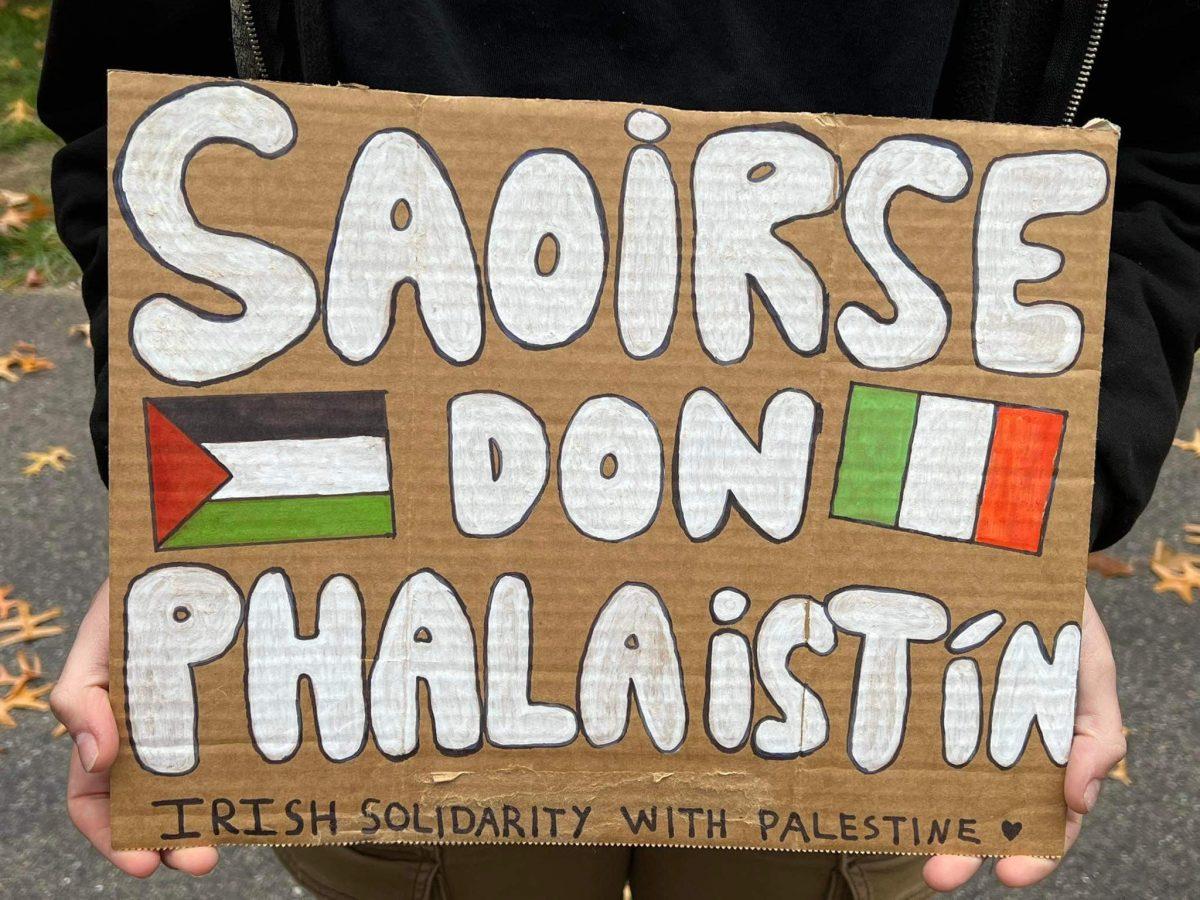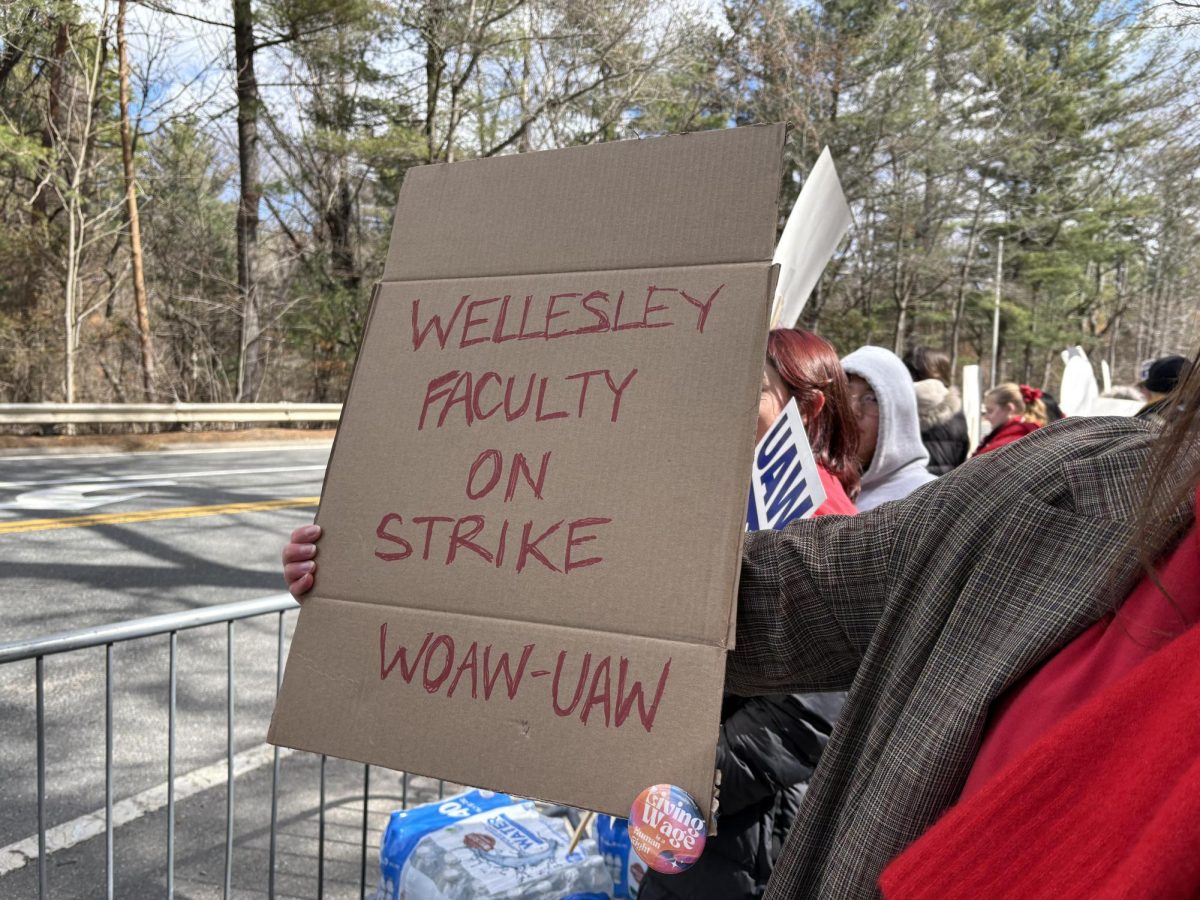The Wellesley College community continues to organize events on campus in response to the recent events in Israel and Palestine.
On Oct. 26, a walk-out was held in the Academic Quad at 2 p.m. to show solidarity for Palestine. Students and faculty who gathered in the Academic Quad waited for the organizers of the walk-out to identify themselves, but they never did. Students then stepped up to the front of the crowd, started chants, called for the liberation of Palestine and to cease U.S. funding of the Israeli government.
Wendy was one of the students who stepped up and started chants at the walk-out. They stepped up at the walk-out after the first person called for other people to join them at the front.
“Activism is growing, I think more people are more comfortable with saying ‘I don’t support a genocide,’” Wendy said. “With everyone’s effort, and people posting and reposting on social media, even if you’re not the one doing it, then you’re one step closer to acting upon it because you’re seeing it in your feed more frequently.”
On Oct. 27, the Albright Institute organized a panel titled “Teach-in on Current Events in Israel-Palestine” held in Pendleton East. The panelists, Nathaniel Shils (Visiting Lecturer in Political Science), Stacie Goddard (Professor of Political Science) and Lidwien Kapteijns (Professor of History), informed the Wellesley community about the political and legal stakes over the events in Israel and Palestine.
Wilma, a Jewish student at Wellesley, believes that the Jewish community at Wellesley needs to have a more open-minded conversation about the events in Israel and Palestine.
“I think that’s an important thing for the Jewish community to reckon with and say ‘how can we remove the pain and suffering that Jewish people have endured from this situation and decenter past trauma in this. I think a lot of Jews will cite the Holocaust or they’ll say, ‘the Jews deserve a homeland because of all the trauma we’ve endured,’” Wilma said. “I don’t deny that, but personally, I don’t feel comfortable having that security of having a homeland on the basis of colonialism, and frankly, genocide, which, I think is a controversial take at Wellesley and within the Jewish community.”
On Nov. 2, Al-Muslimat, the Muslim student organization on campus, held “Prayers for Palestine” on the Chapel Lawn at 6 p.m. The prayer was led by Chaplain Amira and was followed by a student-led reflection.
Wanda, who has been active in organizing in student clubs and organizations, believes that while education is important for creating and maintaining activism, more could be done on campus to raise awareness.
“From the people I’ve hung out around, I’m still reminding them that things are still happening. It’s a bit disheartening that people don’t act because it doesn’t affect them,” Wanda said.
On-campus organizing has also addressed correspondence from Wellesley administration as an issue. On Oct. 11, President Johnson issued a statement to the College condemning Hamas’ “ taking of hostages and the indiscriminate murdering and terrorizing of civilians.” On Oct. 20, Johnson sent another email stressing the importance of inclusive excellence and pointing the College community to the Office of Religious and Spiritual Life as a support resource.
One student, Winnie, found both statements disappointing. “When I read those emails, it just feels like saying Palestinian is forbidden, like it’s a forbidden word that cannot be said and acknowledged,” Winnie said. “These people are Palestinians. These people are not just Muslims, but they are majority Muslim – but it feels like this is why admin is okay with not addressing these problems. I just wish that the Wellesley administration could take accountability and acknowledge the humanitarian crisis and the genocide is happening as it is, and acknowledge the colonial powers.”
All students mentioned and quoted in the article have been granted anonymity to protect their identities.




